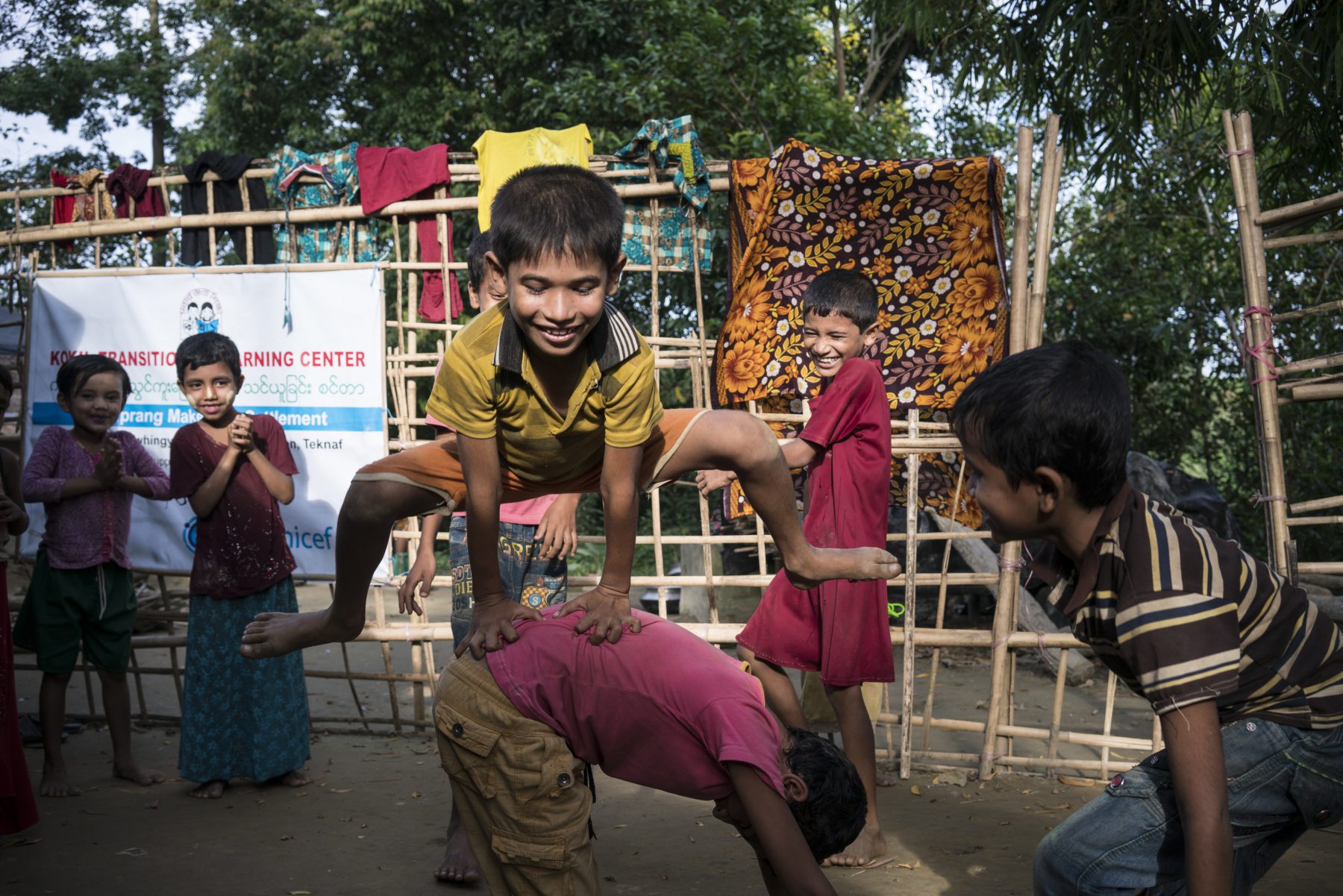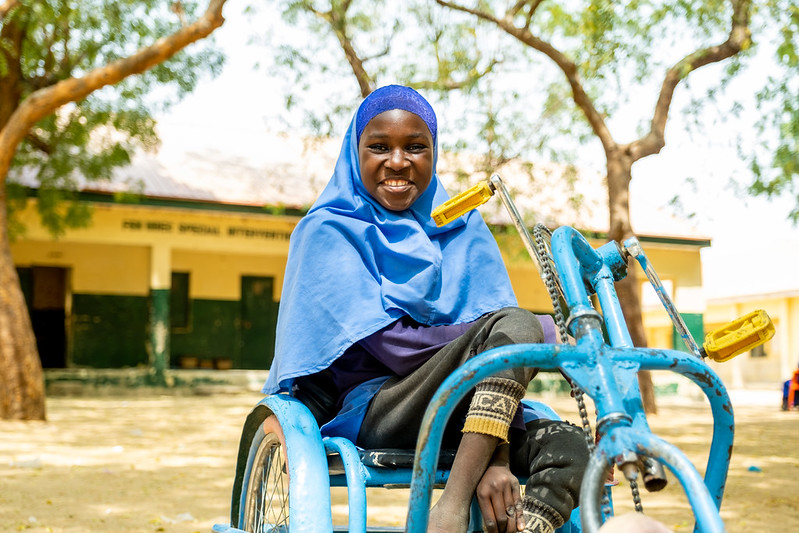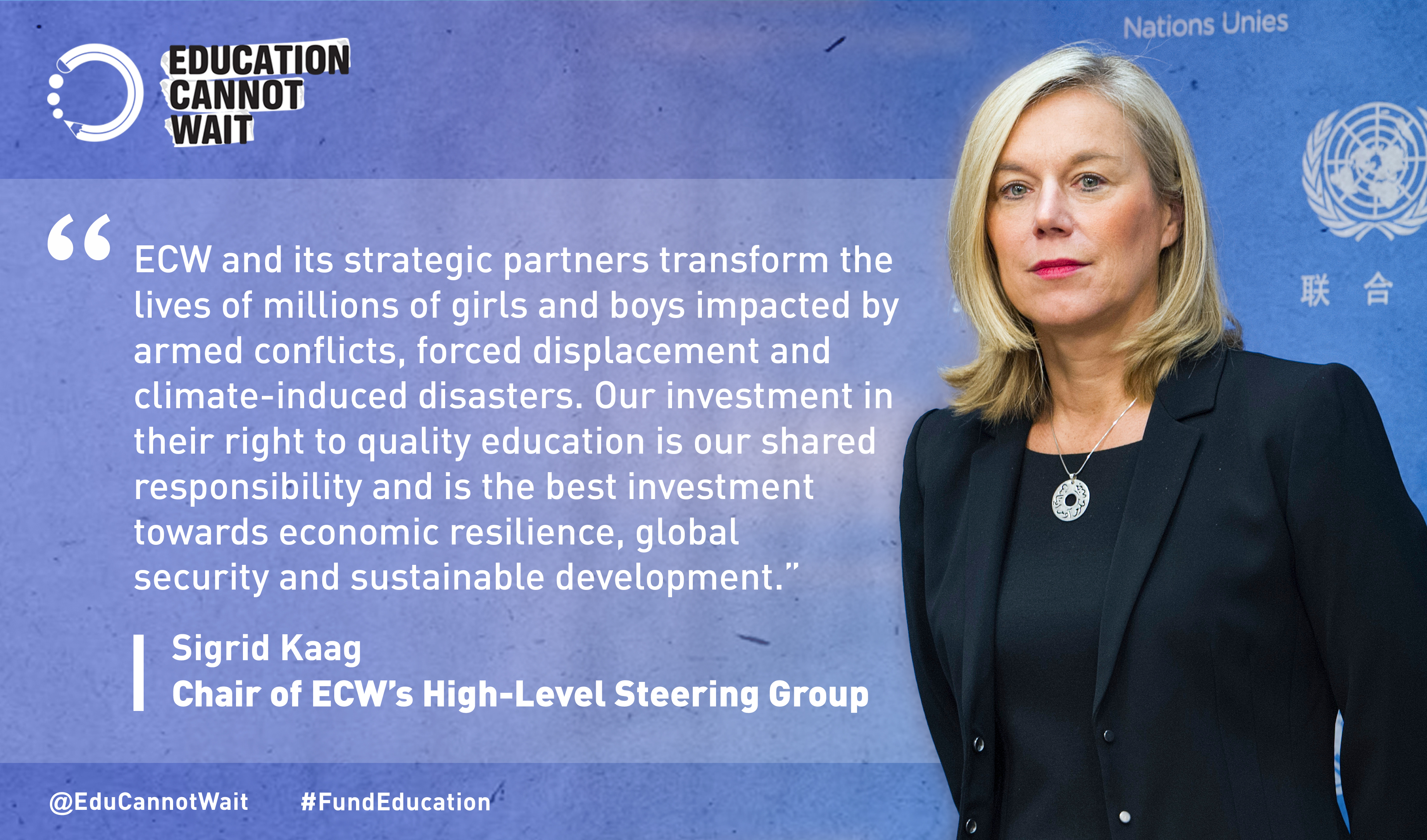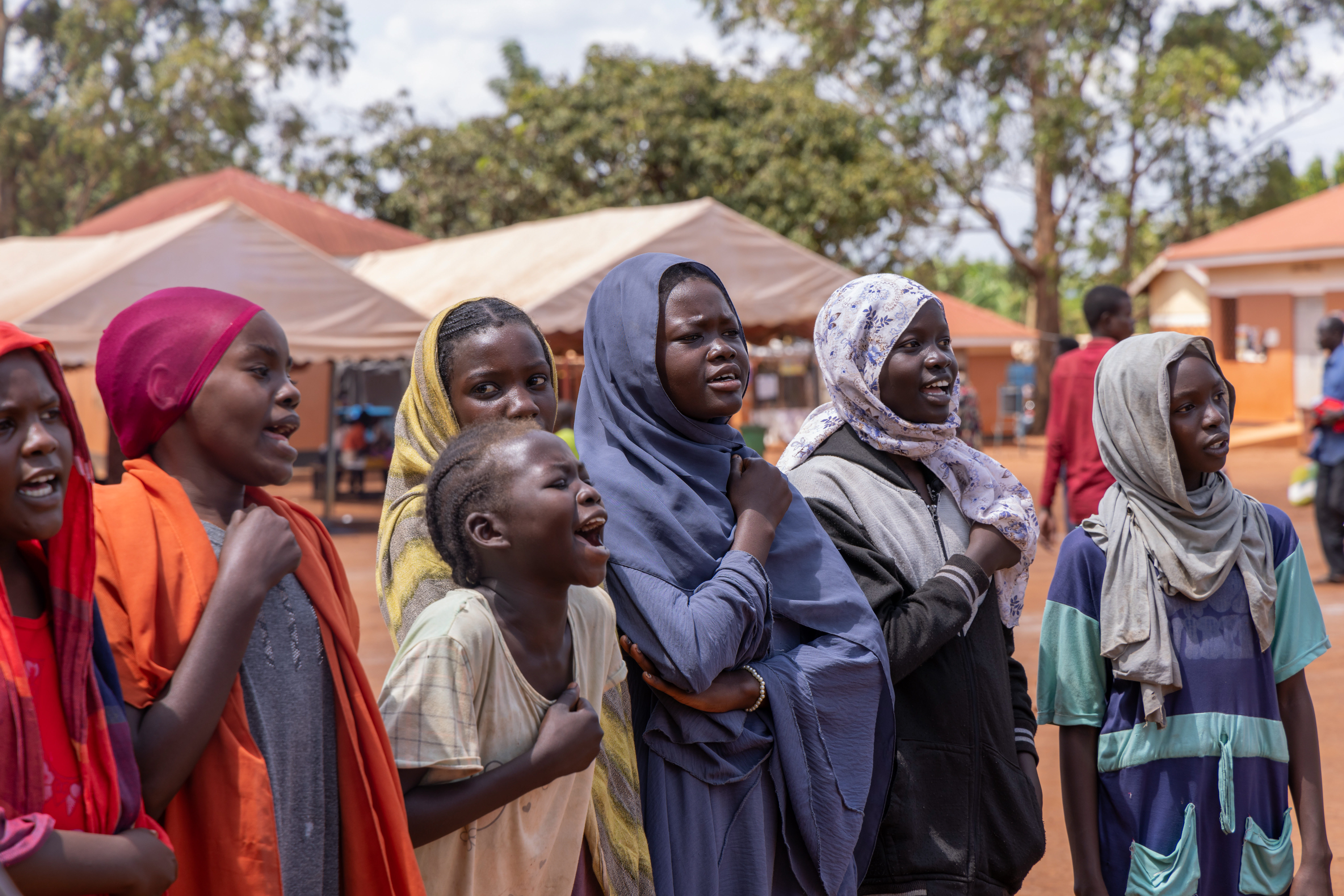Global Education Cluster Annual Partners Meeting Takes Place in Brussels

education experts from 10 country delegations were gathered in Brussels on the occasion of the Education Cluster Annual Partners Meeting hosted by the Directorate-General for European Civil Protection and Humanitarian Aid Operations (DG ECHO). Education Cannot Wait (ECW) Director Yasmine Sherif spoke about the organic partnership between ECW and the Education Cluster and took part in a panel on the importance of putting evidence at the core of education in emergencies response. The event was also a valuable opportunity for ECW to meet and work with the Education Cluster coordination teams involved in ECW-supported programmes in Syria, Afghanistan, Yemen, Ukraine and Somalia and other strategic partners attending the meeting.
About the Cluster Approach
Good coordination on the ground between humanitarian actors in times of emergencies is crucial to reach more people in need in a faster, better and more cost-effective manner.
The current humanitarian coordination architecture was set in 1991 through the UN General Assembly resolution 46/182. The same resolution called for the establishment of the Inter-Agency Standing Committee (IASC), a unique inter-agency forum for coordination of humanitarian assistance, policy development and decision-making involving key UN and non-UN humanitarian partners.
In 2005, a major reform of humanitarian coordination, known as the Humanitarian Reform Agenda, introduced a number of new elements to enhance predictability, accountability and partnership in the international humanitarian coordination system; the Cluster Approach was one of these new elements. Clusters are groups of humanitarian organizations, UN agencies, NGOs, academics and other partners, assembled in 11 areas of humanitarian expertise including education, food security, health, logistics, shelter, protection and emergency telecommunications. They are designated by the Inter-Agency Standing Committee (IASC) and have clear responsibilities for coordination.
About the Education Cluster
The Education Cluster is the only global cluster co-led by a UN agency and an international NGO: UNICEF and Save the Children. It works as an open formal forum for knowledge exchange, coordination and collaboration between UN agencies, NGOs, ministries of education and academics on education in emergencies. Education Clusters have been set up at field level in a large number of countries experiencing humanitarian crises; they act as a crucial network that coordinates education in emergencies work, bringing partners together to ensure priority needs are identified and met. Clusters at the country level are essential for information sharing and knowledge management, advocacy and resource mobilization and provide technical support to organizations implementing education programmes in extremely challenging contexts. At the global level, the work of the Global Education Cluster is focused on providing operational support to country clusters, building response capacity and developing and implementing standards and policies. It also represents the education sector in the global humanitarian arena and other relevant fora.
The Education Cluster Global Partners (ECGP) is a group made up of representatives of humanitarian agencies directly or indirectly involved in the delivery of education services during emergencies or related technical policies and guidance. They meet once a year at a Global Education Cluster Meeting that involves cluster coordinators and partners from the field. The global partners work together throughout the year on a number of areas, in particular field support, strengthening the framework and capacity building, and advocacy.
This year’s Meeting in Brussels
The meeting this year was dedicated to the Humanitarian-Development Nexus, with four panels exploring components of this broader theme.
Christos Stylianides, EU Commissioner for Humanitarian Aid & Crisis Management (DG ECHO), opened the event by reiterating his “positive obsession” for Education in Emergencies, stressing how he has seen firsthand how it can bring hope and courage to people living in crisis. In most contexts, he remarked, humanitarian and development education work is undertaken in parallel, and urged this to be better linked. Within DG ECHO’s portfolio, longer-term action (up to 24 months) for education in emergencies is explicitly encouraged. Mr. Stylianides announced the European Union’s humanitarian budget dedicated to education in emergencies would be increased to 8 percent in 2018.
Tove Wang, CEO, Save the Children Norway, stated that the European Union’s support was an inspiration and saw this as a call to action to increase efforts and ensure country clusters have what they need to deliver coordinated responses. Sikander Khan, Director, Geneva Office of Emergency Programmes, UNICEF, restated this gratitude, noting how far the system has come to collectively meet the needs of affected people.
Yasmine Sherif reiterated ECW’s commitment to strengthening the Education Cluster as a part of its mission to bring actors together during emergencies and protracted crises and build on existing coordination mechanisms at both global and country levels. She stressed the need to move education from the margins of humanitarian prioritization to the center to meet the priority needs of targeted communities while paving the grounds for other humanitarian and development priorities. She called on colleagues to continue to fight for education as the key sector driving the humanitarian-development nexus, and join forces in that perspective through collective assessment, planning and response.
Watch this video interview where ECW Director Yasmine Sherif explains to Save The Children’s Lizzie Copestake how ECW is building on the Education Cluster’s grassroots positioning and recognized coordination role in the global humanitarian architecture to reach children and empower host countries in the most effective way.
A summary of the main take-aways of the event can be found on the Global Education Cluster website.
Bilateral meetings
The event in Brussels was a valuable opportunity for ECW to meet with officials, agencies and Education Cluster coordinators working in countries supported through ECW’s pooled funds in Syria, Afghanistan, Yemen, Ukraine and Somalia. As many of these coordinators have been mandated to coordinate and roll out ECW-funded programmes in those countries, the bilateral meetings in Brussels were a chance to discuss the status, achievements and particular challenges encountered by implementing partners on the ground, as per ECW’s commitment to remain field- and need-driven and continuously adapt to the volatile environment and complex coordination mechanisms that characterize work and educational support in crisis setting. ECW and implementing partners also discussed the possibility of transitioning from one-year programmes financed through ECW’s First Response window to multi-year frameworks made possible through ECW’s Multi-Year Resilience window to address the needs of children and teachers in the longer term, as affected communities and domestic governments work to break out of crisis mode. ECW-facilitated multi-year education programmes shall be led and co-financed by Ministries of Education and designed in close coordination with local civil society organisations, in line with ECW’s commitment to strengthen local education systems and national ownership.
ECW also took the chance to meet with strategic partners, including the Education Cluster team, the Directorate-General for International Cooperation and Development (DG DEVCO) and the Directorate-General for European Civil Protection and Humanitarian Aid Operations (DG ECHO) of the European Commission, INEE, NORCAP, Finn Church Aid, GIZ and the Federal Department of Foreign Aid (FDFA) of the Swiss Confederation. Those bilateral meetings were a chance for established partners such as the Education Cluster, INEE and DEVCO to pave the grounds for accelerated collaboration in 2018. With new stakeholders, ECW discussed opportunities to join forces and support the efforts of implementing partners on the ground and ensure continuous access to quality learning for crisis-affected children, while empowering local actors in their efforts to build the foundations for peace, health, gender equality, resilience to shock and sustainable development.
For Press Inquiries:
Anouk Desgroseilliers:
adesgroseilliers@un-ecw.org
+1-917-640-6820
Kent Page:
kpage@unicef.org
+1-917-302-1735



